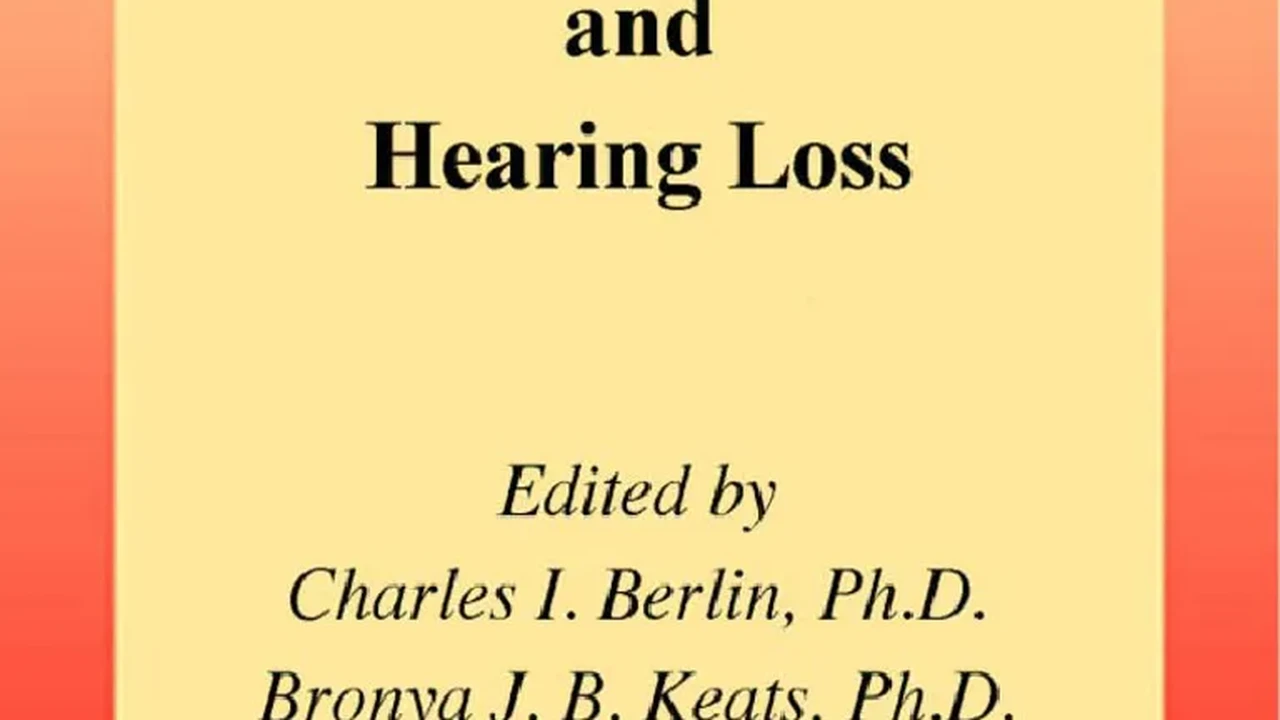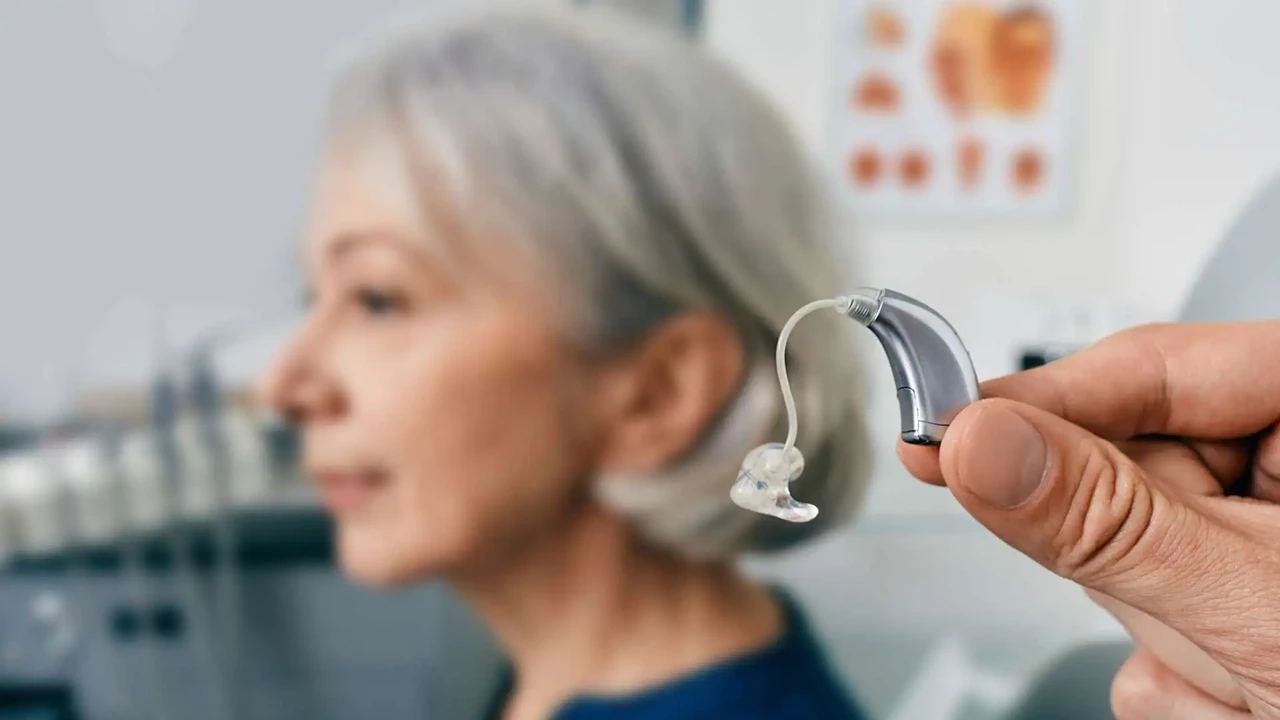Genetic Hearing Loss Causes and Inheritance
Investigate the connection between cardiovascular health and hearing loss. Understand how heart health impacts blood flow to the inner ear.

Hearing Loss and Cardiovascular Health Link
Understanding the Intricate Connection Between Heart Health and Hearing
Hey there! Ever wondered if your heart health could be whispering secrets to your ears? It might sound a bit far-fetched, but there's a growing body of research suggesting a pretty significant link between your cardiovascular system and your ability to hear. We're not just talking about a casual acquaintance here; it's more like a deep, interconnected relationship where one can profoundly affect the other. This isn't just some academic curiosity either; understanding this connection can be a game-changer for how we approach both heart health and hearing care. So, let's dive in and explore how your ticker might be influencing your hearing, and what you can do about it.
The Science Behind the Link How Blood Flow Impacts Hearing
At the core of this connection is something fundamental: blood flow. Your inner ear, specifically the cochlea, is an incredibly delicate and complex organ. It's packed with tiny hair cells that are responsible for converting sound vibrations into electrical signals that your brain interprets as sound. These hair cells are super sensitive and require a constant, robust supply of oxygen and nutrients to function properly. And guess what delivers that vital supply? Your cardiovascular system, of course!
Think of your inner ear as a tiny, high-performance engine. Just like any engine, it needs a steady flow of high-quality fuel to run efficiently. If your heart isn't pumping blood effectively, or if your blood vessels are narrowed or hardened, that 'fuel' delivery system gets compromised. When the blood supply to the cochlea is reduced or impaired, those delicate hair cells don't get enough oxygen and nutrients. Over time, this can lead to damage and even death of these cells, resulting in sensorineural hearing loss. It's a bit like a slow, silent erosion of your hearing ability.
Several studies have highlighted this. For instance, research has shown that individuals with cardiovascular disease, such as hypertension (high blood pressure), atherosclerosis (hardening of the arteries), and heart failure, are significantly more likely to experience hearing loss. It makes sense, right? If your arteries are stiff and clogged, the tiny, intricate blood vessels supplying your inner ear are going to be among the first to suffer.
Common Cardiovascular Conditions and Their Hearing Implications
Let's break down some specific cardiovascular conditions and how they can play a role in your hearing health:
High Blood Pressure Hypertension and Hearing Loss
Hypertension is a big one. When your blood pressure is consistently high, it puts immense strain on your blood vessels, causing them to stiffen and narrow. This can restrict blood flow to the inner ear. Imagine a garden hose with too much pressure – it can damage the hose over time. Similarly, sustained high blood pressure can damage the delicate blood vessels in your cochlea, leading to hearing impairment. Some studies even suggest that the fluctuations in blood pressure can be particularly damaging.
Atherosclerosis Hardening of the Arteries and Auditory Health
Atherosclerosis is another major culprit. This condition involves the buildup of plaque in your arteries, making them narrow and less flexible. This directly impedes blood flow. If the arteries supplying your inner ear are affected, those hair cells are going to be starved of oxygen. It's like a traffic jam in your circulatory system, and your inner ear is stuck at the back of the queue, not getting what it needs.
Heart Disease and Stroke Risks for Hearing
More severe heart conditions, like heart failure or a history of stroke, also significantly increase the risk of hearing loss. A stroke, for example, is essentially a blockage or rupture of a blood vessel in the brain. If this affects the areas of the brain responsible for processing auditory information, or if it impacts the blood supply to the inner ear, hearing loss can be a direct consequence. Heart failure, where the heart struggles to pump blood efficiently, means less oxygenated blood reaching all parts of the body, including your ears.
Diabetes and Microvascular Damage to the Ear
While not strictly a cardiovascular disease, diabetes is often closely linked due to its impact on blood vessels. High blood sugar levels can damage small blood vessels throughout the body, a condition known as microvascular damage. The inner ear is particularly susceptible to this. Many people with diabetes experience hearing loss, and this microvascular damage is believed to be a primary reason. It's another example of how systemic health issues can have a direct impact on your hearing.
Recognizing the Symptoms When to Get Checked
So, how do you know if your heart health might be affecting your hearing? It's not always obvious, as hearing loss often develops gradually. Here are some signs to look out for:
- Difficulty understanding speech, especially in noisy environments.
- Frequently asking people to repeat themselves.
- Turning up the volume on your TV or radio higher than others prefer.
- Missing parts of conversations.
- Tinnitus (ringing or buzzing in your ears).
- Feeling isolated or withdrawing from social situations because of communication difficulties.
If you're experiencing any of these symptoms, especially if you also have known cardiovascular risk factors or conditions, it's a good idea to get both your hearing and your heart checked. Don't wait until it's severe; early detection and intervention are key for both conditions.
Preventative Measures Protecting Your Heart and Your Hearing
The good news is that many of the steps you take to protect your heart also benefit your hearing. It's a win-win situation! Here's how you can be proactive:
Healthy Lifestyle Choices for Cardiovascular and Auditory Wellness
This is the foundation. A balanced diet rich in fruits, vegetables, and whole grains, and low in saturated fats, cholesterol, and sodium, is crucial. Regular physical activity – aim for at least 150 minutes of moderate-intensity exercise per week – strengthens your heart and improves circulation. Maintaining a healthy weight also reduces strain on your cardiovascular system.
Managing Existing Health Conditions Proactive Care
If you have high blood pressure, diabetes, or high cholesterol, it's vital to manage these conditions effectively with your doctor. This means taking prescribed medications as directed, monitoring your levels regularly, and making necessary lifestyle adjustments. Controlling these conditions can significantly reduce the risk of damage to your inner ear.
Regular Check-ups and Screenings for Early Detection
Don't skip your annual physicals! Regular check-ups allow your doctor to monitor your blood pressure, cholesterol levels, and blood sugar. If you have cardiovascular risk factors, consider getting regular hearing screenings as well. An audiologist can detect subtle changes in your hearing before they become significant problems.
Avoiding Harmful Habits Smoking and Excessive Alcohol
Smoking is terrible for your cardiovascular system, and by extension, your hearing. It damages blood vessels and reduces blood flow. Excessive alcohol consumption can also negatively impact both heart health and hearing. Cutting back or quitting these habits can make a huge difference.
Hearing Aids and Cardiovascular Health Supporting Overall Well-being
If you do have hearing loss, especially if it's linked to cardiovascular issues, hearing aids can play a crucial role not just in improving your hearing, but potentially in supporting your overall well-being. By restoring auditory input, hearing aids can help reduce the cognitive load on your brain, which might otherwise be working overtime to fill in missing sounds. This can indirectly benefit cognitive function, which is often intertwined with cardiovascular health.
Let's look at some specific hearing aid options that might be particularly beneficial, keeping in mind that the best choice always depends on your specific hearing loss, lifestyle, and budget. We'll focus on models known for excellent sound processing, connectivity, and features that can help in various listening environments, which is especially important if your hearing loss is complex due to underlying health conditions.
Recommended Hearing Aid Products for Cardiovascular-Related Hearing Loss
When considering hearing aids, especially with a background of cardiovascular health concerns, you'll want devices that offer clear sound, good noise reduction, and reliable performance. Here are a few top contenders, keeping in mind that prices are estimates and can vary widely based on provider, location, and included services:
1. Phonak Paradise Series (e.g., Audeo Paradise P90)
- Description: Phonak's Paradise series is renowned for its exceptional sound quality and advanced features. The P90 is their premium model, offering a rich, natural sound experience.
- Key Features:
- AutoSense OS 4.0: Automatically adapts to various listening environments, optimizing sound for speech clarity and comfort. This is crucial for reducing listening effort, which can be beneficial if you're also managing other health conditions.
- Bluetooth Connectivity: Seamlessly connects to smartphones (iOS and Android) and other Bluetooth-enabled devices for direct streaming of calls, music, and podcasts. This can enhance communication and reduce stress.
- Motion Sensor Hearing: Detects if you are moving and adjusts microphones to improve speech understanding.
- Tap Control: Allows you to answer calls, pause/resume streaming, and activate voice assistants with a simple tap on your ear.
- Rechargeable Options: Many models are rechargeable, offering a full day of hearing on a single charge, which adds convenience and reduces the hassle of battery changes.
- Usage Scenario: Excellent for active individuals who need superior performance in diverse and challenging listening environments, from quiet conversations to noisy restaurants. The clear sound and connectivity can reduce communication stress, which is good for overall well-being.
- Estimated Price Range: $3,000 - $7,000 per aid (premium level).
2. Oticon More Series (e.g., More 1)
- Description: Oticon More hearing aids are designed with a unique 'Deep Neural Network' (DNN) that has been trained with 12 million real-life sound scenes. This allows the hearing aid to process sound more like the brain naturally does.
- Key Features:
- MoreSound Intelligence: Provides access to all sounds in a clear, balanced, and precise way, rather than just focusing on speech from the front. This 'open sound' approach can be less fatiguing.
- Deep Neural Network (DNN): Processes sound with incredible speed and accuracy, helping the brain make sense of sounds more easily.
- Bluetooth Connectivity: Supports direct streaming from iPhone and select Android devices.
- Rechargeable Options: Available in rechargeable miniRITE R style.
- Tinnitus SoundSupport: Offers various sound options to help manage tinnitus, a common co-occurrence with hearing loss.
- Usage Scenario: Ideal for those who desire a more natural sound experience and struggle with understanding speech in complex, dynamic environments. The DNN technology aims to reduce listening effort, which can be beneficial for individuals managing other health conditions.
- Estimated Price Range: $2,800 - $6,500 per aid (premium level).
3. ReSound ONE Series (e.g., ONE 9)
- Description: ReSound ONE introduces a unique Microphone & Receiver-In-Ear (M&RIE) design, placing a third microphone directly in the ear canal. This leverages the natural shape of your ear for a more individualized and natural sound experience.
- Key Features:
- M&RIE (Microphone & Receiver-In-Ear): Provides a more natural sound experience by collecting sound from inside the ear canal, improving sound localization and reducing wind noise.
- Ultra Focus: A powerful directional setting that allows you to focus on speech directly in front of you in very noisy situations.
- All Access Directionality: Automatically adjusts directional microphone patterns to optimize speech understanding in various environments.
- Bluetooth Connectivity: Direct streaming from iOS and Android devices.
- Rechargeable Options: Available in rechargeable models with long battery life.
- Usage Scenario: Best for users who prioritize a natural sound experience and struggle with localizing sounds or hearing in windy conditions. The M&RIE design can offer a more comfortable and less fatiguing listening experience, which is important for overall health management.
- Estimated Price Range: $2,700 - $6,000 per aid (premium level).
4. Signia Styletto X
- Description: Signia Styletto X is known for its sleek, stylish design that resembles a modern earbud, making it a popular choice for those who prioritize aesthetics. It also packs powerful technology.
- Key Features:
- Signia Xperience Platform: Uses acoustic-motion sensors to understand your environment and movement, providing a personalized hearing experience.
- Own Voice Processing (OVP): Makes your own voice sound natural, which can be a common complaint for new hearing aid users.
- Bluetooth Connectivity: Direct streaming from iOS and Android devices.
- Rechargeable: Comes with a portable charging case that provides several charges on the go, perfect for an active lifestyle.
- TeleCare: Offers remote support from your hearing care professional.
- Usage Scenario: Ideal for fashion-conscious individuals who want a discreet yet powerful hearing solution. Its advanced processing and natural sound can reduce listening fatigue, contributing to better overall health management.
- Estimated Price Range: $2,500 - $5,500 per aid (mid to premium level).
Important Considerations When Choosing Hearing Aids
- Professional Fitting and Adjustment: Regardless of the brand or model, a professional fitting by a qualified audiologist is absolutely crucial. They will program the hearing aids specifically for your hearing loss profile and make necessary adjustments. This is not a 'one size fits all' solution.
- Trial Period: Most reputable providers offer a trial period (often 30-60 days). Use this time to test the hearing aids in all your typical environments and provide feedback for adjustments.
- Aftercare Services: Inquire about what's included in the price, such as follow-up appointments, cleaning, and minor repairs. Good aftercare is essential for long-term satisfaction.
- Your Specific Needs: Discuss your lifestyle, listening challenges, and any specific concerns related to your cardiovascular health with your audiologist. They can help you choose the best features.
The Takeaway Prioritizing Holistic Health
The connection between hearing loss and cardiovascular health is undeniable and highlights the importance of a holistic approach to your well-being. Your body's systems are not isolated; they work together, and what affects one can certainly affect another. By taking proactive steps to maintain a healthy heart, you're not just protecting your cardiovascular system; you're also giving your ears the best possible chance to keep hearing the world around you clearly.
So, if you've been putting off that hearing check, or if you've been neglecting your heart health, now's the time to act. Talk to your doctor about your cardiovascular risks, and schedule an appointment with an audiologist if you suspect any hearing changes. Investing in your heart and your hearing is investing in a richer, more connected life. Don't let silent signals from your body go unheard.
:max_bytes(150000):strip_icc()/277019-baked-pork-chops-with-cream-of-mushroom-soup-DDMFS-beauty-4x3-BG-7505-5762b731cf30447d9cbbbbbf387beafa.jpg)






